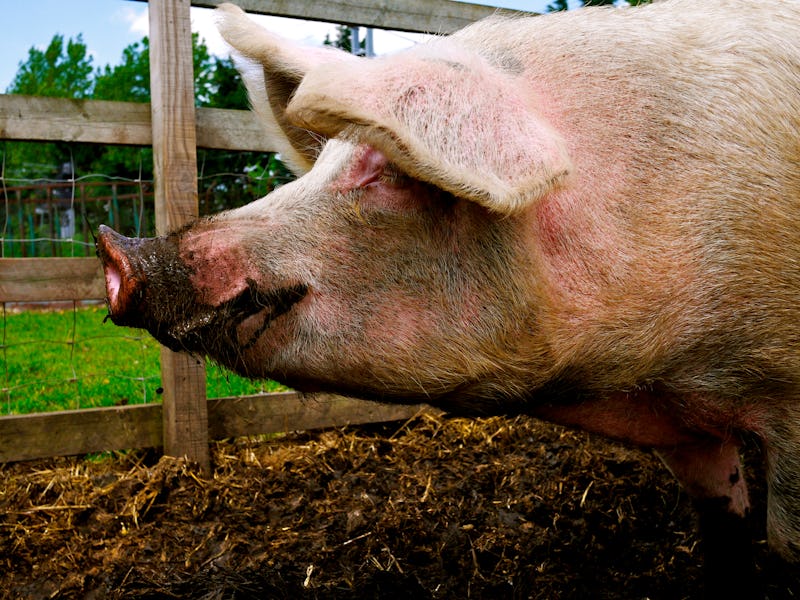Farmers Feed Dead Piglets to Living Pigs for Health Reasons
It’s known as “feedback,” and it’s considered common practice by pig farmers across the U.S.

Farmers are feeding dead piglets to hogs, and the practice is widely accepted, as mentioned in Reuters article on Tuesday.
It may sound like questionable, abusive behavior, but U.S. pork producers use this methodology as a way to fight viruses that have otherwise killed millions of pigs.
Viruses such as Transmissible gastroenteritis and E. coli are known to cause severe diarrhea that kills baby pigs—although all ages of swine are susceptible—but can apparently be fought by a decades-old tactic known as “feedback,” and it’s recommended by several experts.
The Iowa State University’s College of Veterinary Medicine says that all breeding swine can be protected from illness “by feedback of minced intestine or contents from infected piglets on the premise.”
The Swine Vet Center of St. Peter, Minnesota recommends that “Feedback programs are useful to ensure that gilts (primiparous sows) entering the herd have as much natural immunity as possible before breeding.”
National Hog Farmer reports that “feedback is most beneficial for protection against rotavirus and E. coli.”
Reuters reports that Michael Blackwell, chief veterinarian officer for the Humane Society of the United States, says that while feeding baby pigs to other hogs “seems to be pretty barbaric…it is not as inhumane as having millions of piglets killed in an outbreak.”
Immunity has reportedly declined because an increasing number of hogs have never been infected, and therefore don’t have immunity to pass on to offspring. Immunity in hogs can also wear off, after time.
Other techniques intended to raise immunity in pigs is to mix fecal matter taken from infected animals into the food of healthy animals—or to spray a mixture of swine manure and water onto the snouts of healthy pigs—also a preventative measure.
There is no clear report within the pig farming community that implies any major farmer feels feedback to be a negative methodology.